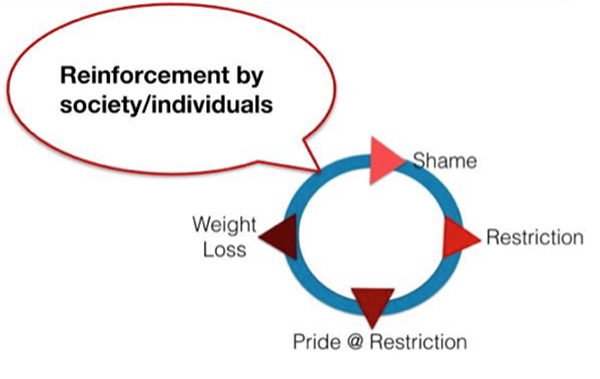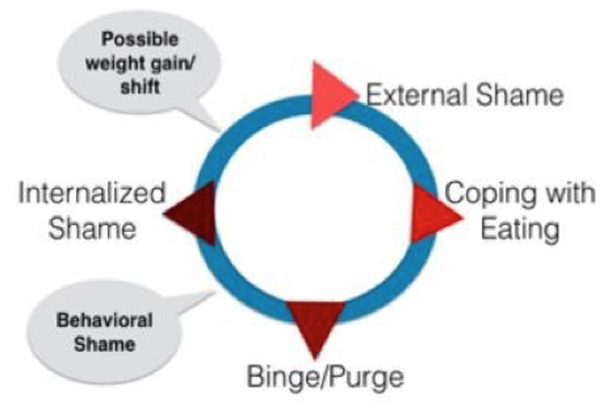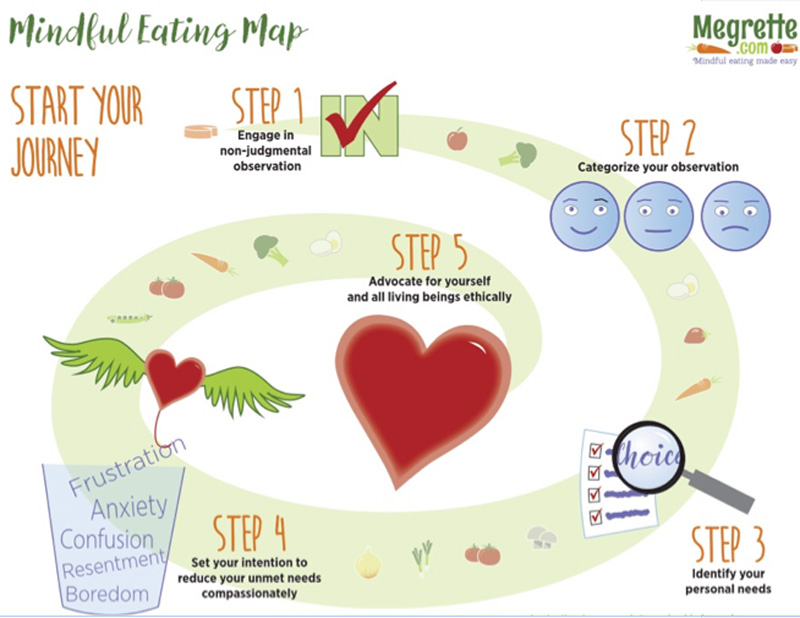Normal eating, Fiona Willard, RD explains, is characterized by flexibility, enjoyment, and satisfaction. This is vastly different than disordered eating – a generic term used to describe appearance driven eating beliefs and behaviors utilized to cope but not promoting or supporting physical health. Disordered eating choices are often patterns or ritual behaviors which typically lead to an eating disorder including: food, weight or appearance based thoughts, conversations, meal skipping, under or overeating, avoiding, or eliminating specific foods because of fears of weight gain or loss, and engaging in excessive or extreme exercise. These ultimately unsustainable, self-harming behaviors, were not initiated with the desire to harm but with the desire to HELP the body. How did things go wrong?
The desire for self-care by engaging in “dieting,” (aka restrictive eating) began as a compassionate act. Yet, somewhere in the process of wanting to engage in self-care, self-harm emerged. The research suggests this shift is not a single decision but multiple points and choices leading toward disordered eating behaviors and patterns[1]. These decisions, when practiced over time, become an invisible pattern of thoughts and behaviors. The downward spiral is summarized in the following two diagrams: Restrictive Pride Eating Cycle and the Overeating Shame Eating Cycle.
Restrictive Pride Eating Cycle

Overeating Shame Eating Cycle
If you are interested in learning more about shame and the role it plays in the development of disordered eating, please consider purchasing The Weight Of Shame webinar program produced by Skelly Skills.
The Mindful Eating Map shows how mindfulness based practices can, not only break the cycle of self-harm, actually prevent it by teaching a five-step compassionate awareness practice.
Mindful Eating Map
The Mindful Eating Map shows how mindfulness based practices can, not only break the cycle of self-harm, actually prevent it by teaching a five-step compassionate awareness practice.
By Megrette Fletcher M.Ed., RD, CDE
Author of Core Concepts of Mindful Eating: Professional Edition
[1] Kenneth Gross and Steven Allan, Shame, Pride, and Eating Disorders. Clinical Psychology Clinical Psychotherapy, (16)303-316, 2009.



